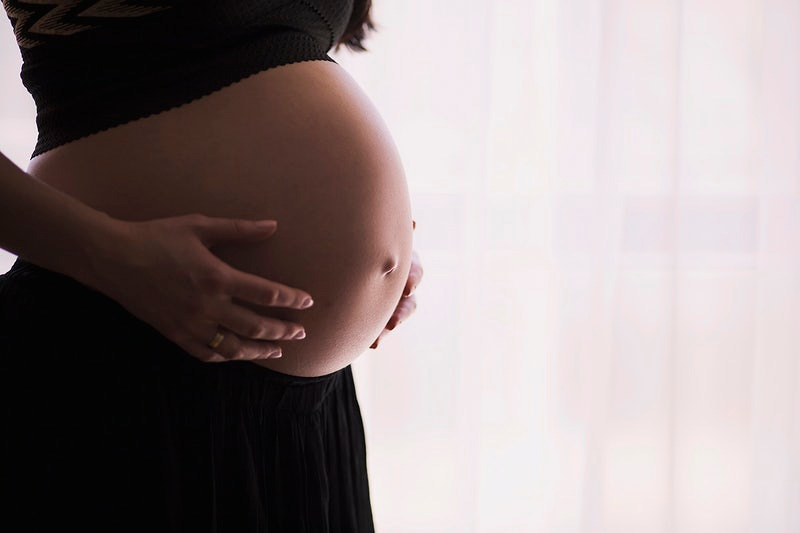
What Type Of Food Should Women Eat During Pregnancy
With all the excitement of pregnancy, several questions arise. And the common one is: What type of food should women eat? It’s very important to include a healthy diet. A well-balanced food maintains the good health of a woman and ensures the proper development of the growing baby. However, remember that every pregnancy is not the same. It differs according to age, contributing to hormonal changes which might affect the pregnancy. There are some circumstances that only the gynaecologist in Melbourne can understand and help with the right solution. The diet plan will be made on the basis of a woman’s health condition and body’s requirements. Regarding the types of food to add to the daily diet during pregnancy, read our article.
Nutritious Food To Include In Your Diet During Pregnancy

Legumes
Legumes are rich in iron, fiber, folates, protein, and calcium. The body needs all these nutrients in excess amounts during pregnancy. Lentils, chickpeas, peanuts, beans, soybeans, and peas are super nutritious legumes.
The folates present in legumes are vital vitamin B9. These nutrients promote the development of the placenta and fetal growth. In addition, they prevent brain and spinal birth defects in newborns. Peanuts, orange juice, and beans can help you meet the need of 600 micrograms per day.
Besides this, legumes are also an excellent source of iron. When a woman is pregnant, there is an increase in blood production due to which the body requires extra iron. Iron makes more blood and supplies oxygen to the growing fetus.
If there is not enough iron in the body during pregnancy, there can be a high risk of anemia. So, include legumes in your diet and maintain good health. However, food is not sufficient to fulfill the requirement of every essential nutrient. Take supplements along with it based on a gynaecologist’s advice.
Besides this, the high fiber content in legumes supports heart health, decreases the risk of diabetes, and prevents constipation as well as preeclampsia.
Dairy Products
When a woman is pregnant, it is a must to intake protein and calcium in excess amounts to meet the requirements of the growing baby. Add dairy products such as yogurt, cheese, and milk on a regular diet.
These foods consist of two kinds of protein: whey and casein. Both the protein provides the amino acid to the body and the growing fetus too. These nutrients play a major part in tissue repair.
In addition, these dairy foods, especially yogurt, consist of a high amount of calcium, necessary for maintaining the nervous, circulatory, and musculoskeletal systems. Deficiency of calcium can lead to the disorder called osteoporosis when bones become weak.
Moreover, dairy products even contain probiotic bacteria, supporting digestive health. Women who are lactose intolerant can take probiotic yogurt. But, ensure to take the advice of the gynaecologist first.
Eggs
During pregnancy, eggs are the best food option to include in your morning diet. They consist of almost every nutrient. A big egg consists of an approximately high amount of protein, 80 calories, varieties of vitamins, minerals, and fat.
In addition, eggs are rich in choline, an essential nutrient for the brain development of the growing child. It also prevents the brain’s and spines’ developmental abnormalities.
One egg consists of about 147 mg of choline, which is close enough to the recommended choline intake during pregnancy (i.e. 450 mg). Take a suggestion from your gynaecologist and include the egg’s quantity in your diet accordingly. Add them into spinach feta wraps or cook an egg scramble.
Broccoli And Leafy Green Vegetables
There is no surprise that broccoli and leafy green vegetables like spinach and kale are packed with a variety of nutrients. The benefit they provide is the abundance of vitamin A, vitamin C, vitamin K, fiber, iron, potassium, calcium, and folate.
Eating green veggies is an effective way to provide your body with different vitamins and fight off constipation because of the fiber present in them. They even reduce the chances of low birth weight. You can add them to your smoothie or eat broccoli salad.
Lean Meats
Lean meats such as chicken, beef, and pork are excellently rich in high-quality protein. Additionally, vitamin B, choline, and iron are also found in pork and beef. All these foods are the perfect option to maintain protein intake while pregnant.
As we already mentioned above, the body needs iron to make more blood required for the growing baby. This condition occurs particularly during the third trimester. Low iron levels increase the risks of birth defects like the low weight of a newborn.
It can be challenging to meet the body’s iron needs for women with high-risk pregnancy and following a vegan or vegetarian diet. So, discuss with the doctor specializing as a high risk pregnancy obstetrician in Melbourne and get the proper diet schedule. The healthcare provider will prescribe some supplements to ensure the right amount of iron.
Pair vitamin-rich foods like bell peppers or oranges with iron-rich food like red meat that may also ease absorption.
Sweet Potatoes
Pregnant women can eat sweet potatoes as they contain beta carotene, a compound when consumed converts into vitamin A which is vital for fetal development. Additionally, the body needs vitamin A for good eye health and an active immune system.
Sweet potatoes are also full of fiber contents that keep the stomach full for a longer time, maintain blood sugar levels, and improve digestive health. Try sweet potatoes with toast for breakfast.
Berries
Berries are full of healthy carbs, fibers, water, antioxidants, and vitamin C. Their glycemic index value is low and reduces blood sugar spikes. Moreover, these organic foods are great snacks as they consist of water as well as fiber.
Eat plenty of fresh blueberries, strawberries, raspberries, and acai berries in the morning time. Blueberries have great potassium content which prevents and controls high blood pressure during pregnancy. The vitamin C present in them strengthens the immune system, thus reducing the risks of infection. An excess amount of antioxidants relieves stress.
Summing Up
Your baby is waiting to intake all nutrients from your well-balanced diet of lean meats, green veggies, sweet potatoes, eggs, broccoli, legumes, and dairy products. Do add all the food to your routine eating plans.
Moreover, keep your gynaecologist informed about your food choices and allow them to guide you with essential supplements. The food list we mentioned above will definitely be a good beginning to a healthy pregnancy.
Apart from that, if you are interested to know about 5 Reasons to Eat More Dried Fruits then visit our Health category.




